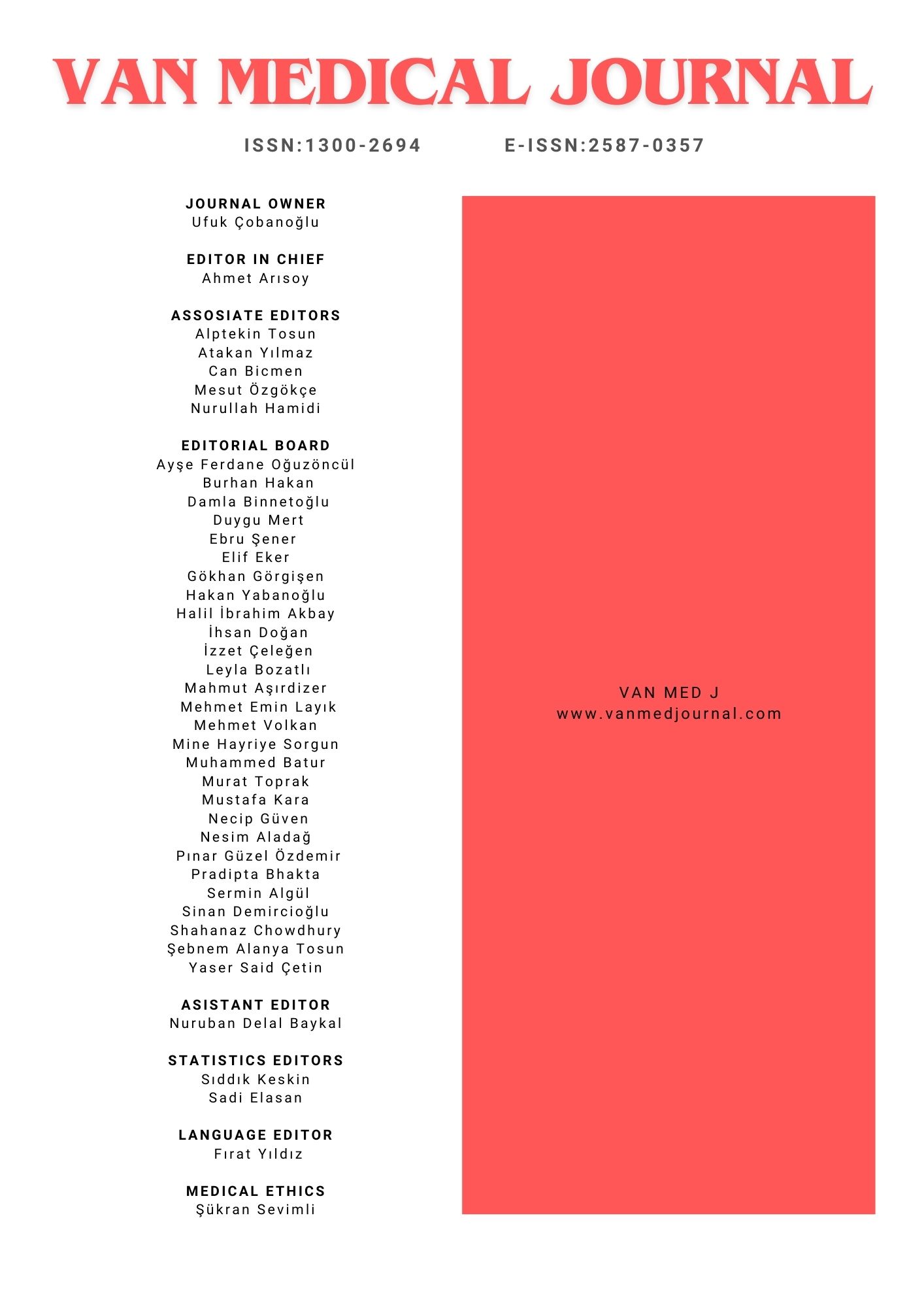Osteoarticular Involvements and Autoantibody Frequency in Patients With Brucellosis
Fatih YıldızKahramanmaras Sutcu Imam University Faculty of Medicine, Department of Internal Medicine, Division of Rheumatology, KahramanmaraşINTRODUCTION: Brucellosis is a chronic infectious disease with osteoarticular (OA) manifestations. It is difficult to distinguish between brucellosis and rheumatologic diseases in endemic areas. In this study, we aimed to report the clinical findings and autoantibody results of patients diagnosed with brucellosis in the rheumatology department.
METHODS: In this study, 92 patients over the age of 18 with the diagnosis of "Brucellosis" were included. All patients' systemic and joint examinations were performed. In the presence of clinical signs, those with a detected value of ≥1: 160 on the standard tube agglutination test were considered to be active brucellosis. Those with arthritis, arthralgia, tenosynovitis-bursitis, spondylodiscitis and sacroiliitis were detected on examination or magnetic resonance imaging, and those with low back or hip pain were recorded. Complete blood count,C-reactive protein (CRP) and erythrocyte sedimentation rate (ESR) and RF, anti-CCP, ANA and anti-DNA results were evaluated.
RESULTS: The mean age of ninety-two patients (Female: 54, 58.7%) was 39.3±13 years. In the OA findings; arthralgia was detected with a ratio of 90.2%, arthritis with 33.7%, myalgia with 28.2%, sacroiliitis with 25% and spondylodiscitis with 6.5%. CRP and ESR means were 19 mm/h with 2.1 mg\dL. RF was positive in 12 (13%), Anti-CCP in 5 (5.4%), ANA in 7 (7.6%).There were no patients with anti-DNA positivity. The median treatment duration was 12 weeks.
DISCUSSION AND CONCLUSION: The anti-CCP positivity was lower than in the literature, and RF and ANA positivity were similar. Symmetrical involvement of small joints, higher CRP and high titer autoantibody positivity were at a higher risk of developing rheumatologic disease.
Brusellozlu Hastalarda Osteoartiküler Tutulumlar ve Otoantikor Sıklığı
Fatih YıldızKahramanmaraş Sütçü İmam Üniversitesi Tıp Fakültesi, İç Hastalıkları Anabilim Dalı, Romatoloji Bilim Dalı, KahramanmaraşGİRİŞ ve AMAÇ: Bruselloz, osteoartiküler (OA) bulguları olan kronik enfeksiyon hastalığıdır. Endemik bölgelerde bruselloz ve romatolojik hastalık ayrımı yapmak zordur. Bu çalışmada romatoloji bölümünde brusellla tanısı alan hastaların klinik bulgularını ve otoantikor sonuçlarını bildirmeyi amaçladık.
YÖNTEM ve GEREÇLER: Bu çalışmaya, “Bruselloz’’ tanılı 18 yaş üstü 92 hasta alındı. Tüm hastaların sistemik ve eklem muayeneleri yapıldı. Klinik bulgular varlığında, standart tüp aglütinasyon testi ≥1: 160 saptananlar aktif brusella kabul edildi. Fizik muayenede veya manyetik rezonans görüntüleme ile artrit, atralji, tenosinovit-bursit, spondilit/spondilodiskit ve sakroiliit saptananlar ve bel veya kalça ağrısı olanlar kaydedildi. Tam kan sayımı, serum C-reaktif protein (CRP) ve Eritrosit sedimantasyon hızı (ESH) ve otoantikor; RF, anti-CCP, ANA ve anti-DNA sonuçları değerlendirildi.
BULGULAR: Doksan iki hastanın (Kadın: 54,%58,7) yaş ortalaması 39,3±13 yıldı. OA bulgular; atralji %90,2, artrit %33,7 (mono-oligoartrit (%77,4), miyalji %28,2, sakroiliit %25 (%78 aktif) ve spondilodiskit %6,5 oranında saptandı. Ortanca tedavi süresi 12 hafta idi. CRP ve ESH ortalamaları, 2,1 mg\dL (0-0,8) ile 19 mm/saat idi. Otoantikor profili; RF 12 (%13), Anti-CCP 5 (%5,4), ANA 7 (%7,6) hastada pozitif idi. Anti-DNA pozitif olan hasta yoktu.
TARTIŞMA ve SONUÇ: Anti-CCP pozitiflik oranı literatüre göre daha düşük, RF ve ANA pozitifliği ise benzerdi. Küçük eklemlerin simetrik tutulumu, daha yüksek CRP ve yüksek titrede otoantikor pozitifliği varsa romatolojik hastalık gelişme riski yüksekti.
Manuscript Language: English

